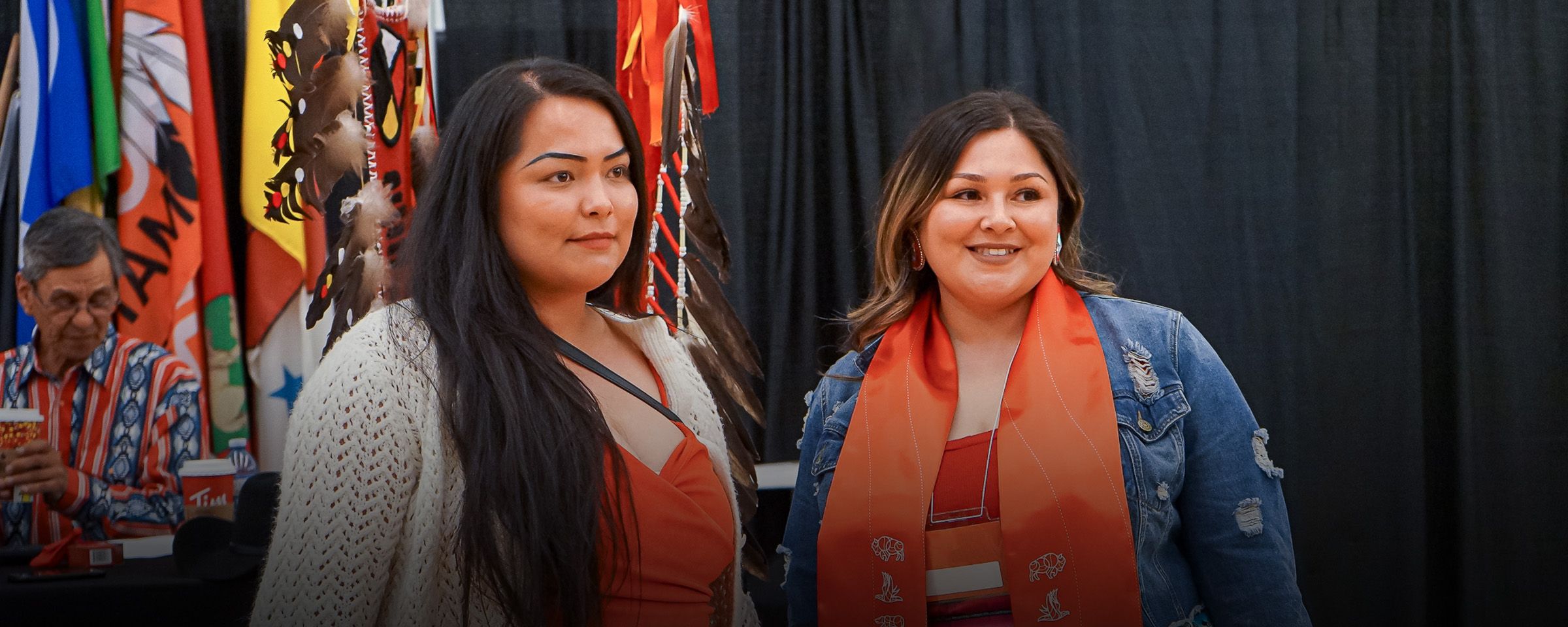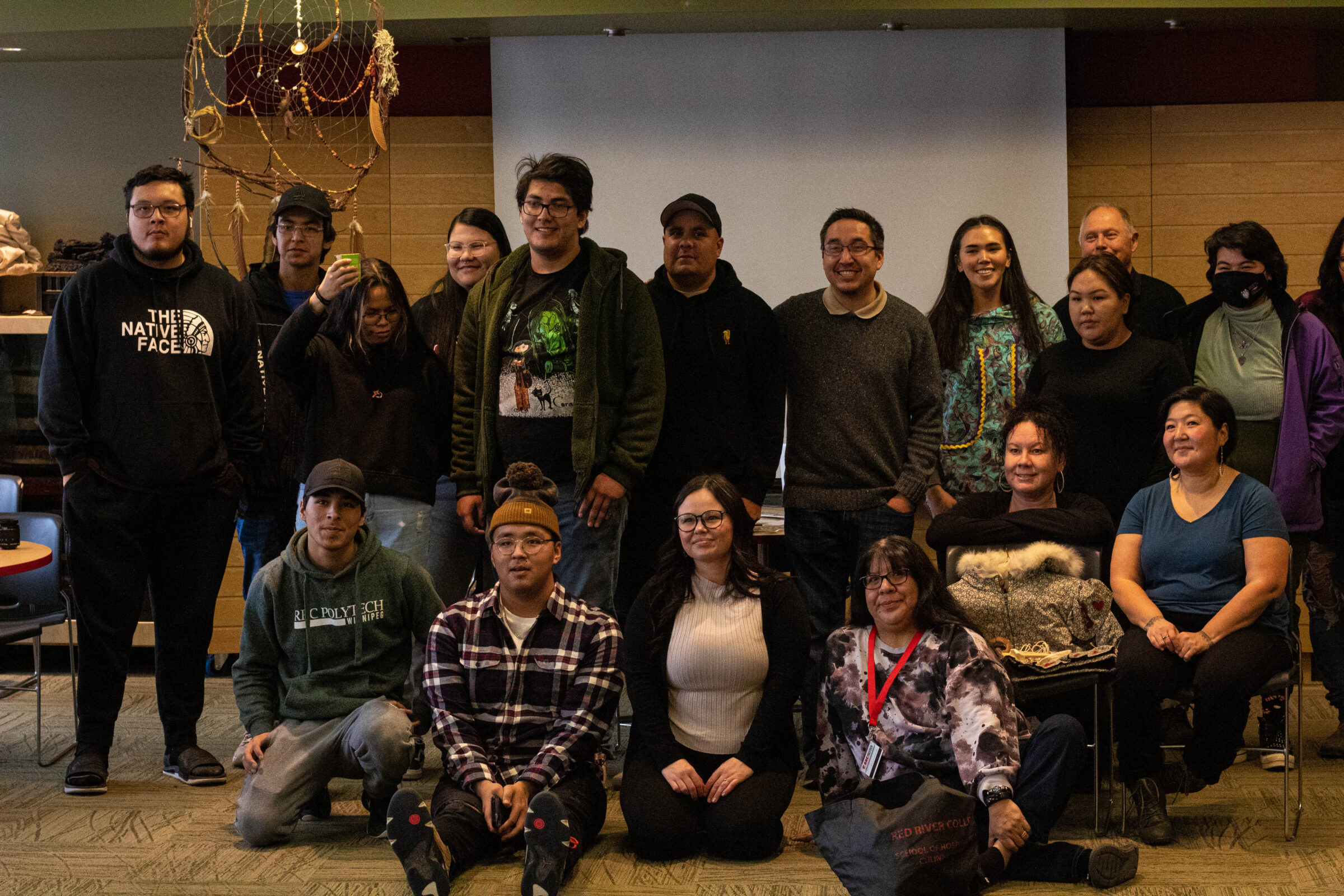International Inuit Day Celebration featuring students from College Transition
Today, RRC Polytech celebrated International Inuit Day with students, staff, faculty, and members of the Manitoba Inuit Association. The event was livestreamed from Notre Dame Campus’s Indigenous Support Centre to the Exchange District Campus’s Indigenous Support Centre, where folks from both campuses enjoyed a pizza lunch, group activities, presentations, and a performance.
The celebration started with a three-song performance by Inuit throat singer Zeann Manernaluk. She explained that throat singing was invented by Inuit women while men were out hunting, and traditionally two women would throat sing together until they laughed or got tired.
Victoria, an Inuit Student Support Worker with the Manitoba Inuit Association, kicked off the group activities with a rundown of their role as an organization in Manitoba: a resource that supports any Inuit people in Manitoba and connects them with services to meet diverse and ever-evolving needs. Victoria presented traditional Inuit clothing and tools and the stories behind them. She demonstrated and invited everyone to compete in Inuit games to win prize packs from the Manitoba Inuit Association.
College Transition students Luke Kusugak and Andrew Owlijoot said a few words about being young Inuit men coming from Rankin Inlet, Nunavut: they’re learning to be more open about their emotions, coming from a place that doesn’t have the infrastructure to focus supports around mental wellbeing.
Chase Powell, another Inuit student in the College Transition program, prepared a PowerPoint presentation to share a brief history of his home Rankin Inlet, Nunavut and his life growing up on the west coast of the Hudson Bay. His mother Esther, who happened to be in Winnipeg for a medical appointment, joined him and shared a short family history and the nature of Inuit life before colonization. PowerPoint pictures depicted the landscape of the north, Chase’s cabin on the coast, caribou on their mating grounds, roads enveloped in blowing snow, and old black-and-white pictures of Chase’s and Esther’s ancestors.
Chase explained that the education in Rankin Inlet didn’t meet his expectations. Teaching was not based on students’ needs, but rather was based on the resources that were available. And resources were basic – there were no supports for students with special needs. The schools had some Inuktitut language classes but didn’t have any Inuit culture classes.
After high school, Chase decided to pursue education. Originally he had planned to attend the University of Winnipeg for a Bachelor’s Degree in Education, but his high school grades weren’t satisfactory. A guidance counsellor at his high school suggested that he try the College Transition program at RRC Polytech, because it would help him get his grades up and prepare him for college life in the south. He applied and has since started on his path to his future goals.
Chase hopes to get his master’s degree in education so he can become a principal. He explained that southerners come up to the north and fill up high-ranking positions in organizations and in government because they had easier access to quality, focused education. Chase wants to change that—having local representation in these positions is important because people who have grown up in the north have a lived experience that can more effectively contextualize the unique needs of learners in Nunavut. He wants to influence change in Nunavut’s education system as a future administrator, to help the learners of future generations obtain the education they need to get into these high-ranking, decision-making, community-impacting positions.
For now, Chase, Luke, Andrew, and their colleagues will continue with the College Transition program and work toward their professional and personal goals. We can’t wait to see where they’ll go!

